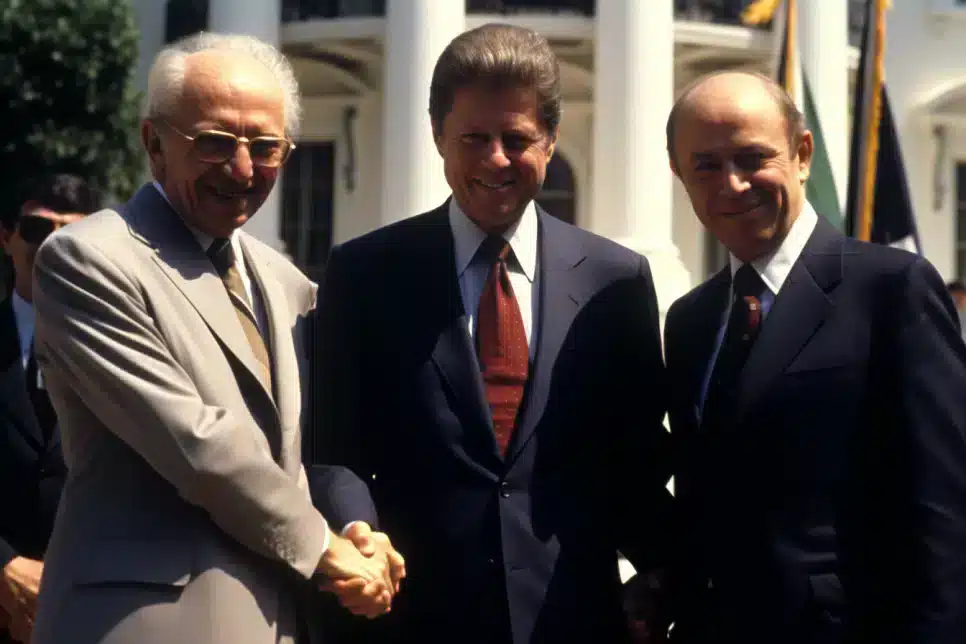In an unexpected turn that could unravel over four decades of peace, Egypt is on the brink of voiding its historic peace treaty with Israel, a move that could have profound implications for the already volatile Middle East. The foundation of this peace was laid in a moment of unlikely camaraderie between Egyptian President Anwar Sadat and Israeli Prime Minister Menachem Begin under the auspices of U.S. President Jimmy Carter at Camp David. This agreement, a beacon of stability, has weathered regional tumult, including Palestinian uprisings and conflicts between Israel and Hamas. Yet, the recent declaration by Israeli Prime Minister Benjamin Netanyahu to deploy troops into Rafah, a Gaza city bordering Egypt, has pushed the Egyptian government to reconsider the longstanding treaty.
The origins of this peace treaty trace back to a period of intense hostility following four significant wars between Egypt and Israel. The world watched in astonishment as Sadat initiated peace talks with Israel, leading to the landmark Camp David Accords and the subsequent peace treaty 1979. This agreement, Israel’s first with an Arab country, entailed significant concessions, including Israel’s withdrawal from the Sinai Peninsula and the establishment of diplomatic relations between the two nations.
Paige Alexander of the Carter Center lamented the current lack of leadership reminiscent of the figures who brokered the original peace, stating, “The Camp David Accords were led by three brave men who took a bold stance because they knew the lasting effects for peace and security, both then and for the future. We need the same kind of leadership today, and it is currently lacking in the Israeli government.”
The current tension revolves around Netanyahu’s strategy to combat Hamas in Rafah, a plan Egypt vehemently opposes due to the potential influx of Palestinian refugees and the disruption of humanitarian aid into Gaza. The situation is further complicated by Rafah’s burgeoning population, which has expanded fivefold as Palestinians seek refuge from the ongoing conflict.
The potential voiding of the peace treaty poses a myriad of strategic and economic challenges for both nations. For Israel, it could mean the loss of a secure southern border, necessitating a military reallocation that could stretch its forces even thinner amidst ongoing regional conflicts. For Egypt, the termination of the treaty risks not only its substantial U.S. army assistance but also the economic strain of a military escalation.
Alexander warns that an Israeli assault on Rafah could inadvertently entangle Egypt in the conflict, a scenario with dire consequences for the region. “If Israel attacks Rafah, it would threaten to draw Egypt into the hostilities, which would be catastrophic for the entire region,” she said.
The potential dissolution of the Egypt-Israel peace treaty underscores the fragile nature of regional stability and the urgent need for diplomatic leadership akin to that which forged this crucial agreement. As tensions escalate, the international community watches closely, hopeful for a resolution that maintains peace and prevents further turmoil in a strained region.




